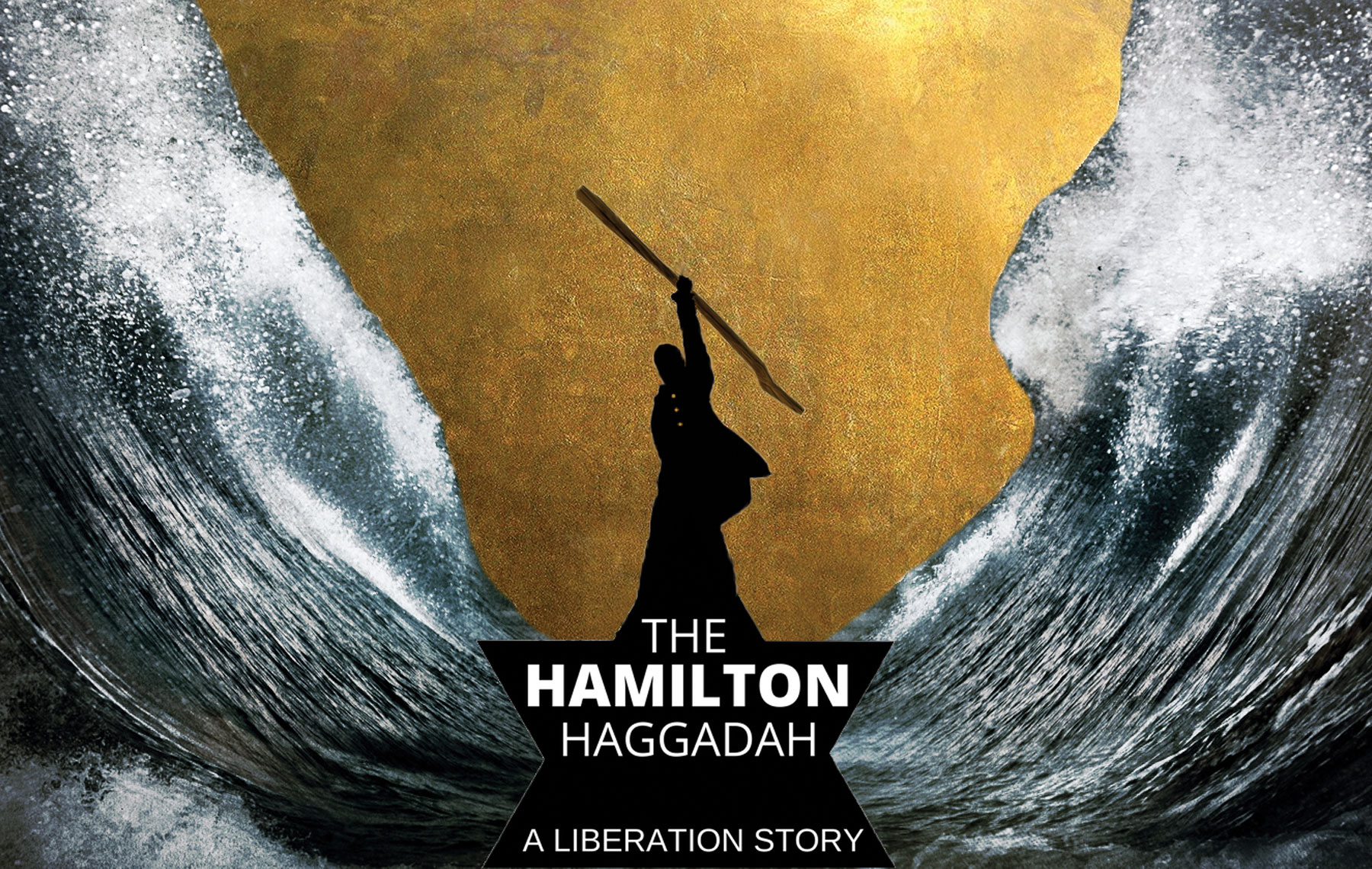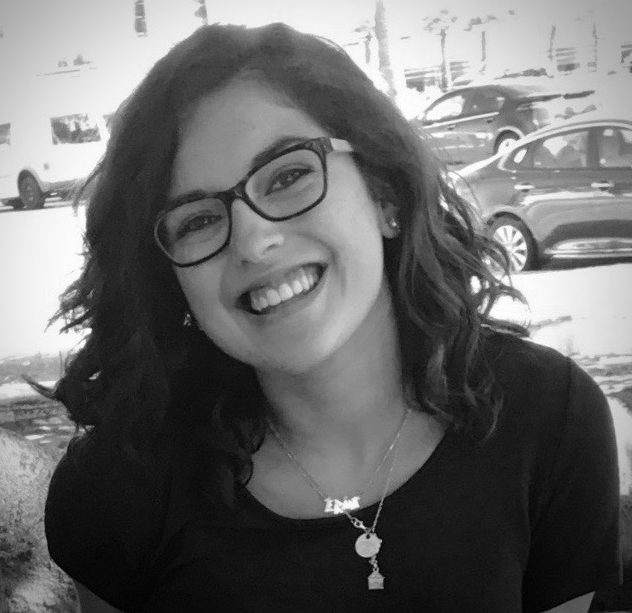 Photo courtesy of Rabbi Jake Adler
Photo courtesy of Rabbi Jake Adler “The Hamilton Haggadah” debuted two years ago, but much like the success of Lin-Manuel Miranda’s Tony-winning phenomenon “Hamilton: An American Musical,” the haggadah ripped from the show’s headlines is still one of the best to have at the seder table if you’re looking for a lively singalong this year.
The Journal recently caught up with the haggadah’s creators to discuss the enduring success of a project that started out as little more than a lark.
After discovering a few Jewish-themed “Hamilton” parody songs on Facebook almost four years ago, Rabbi Jake Adler and Rabbi Emily Cohen (then students at the Reconstructionist Rabbinical College in Pennsylvania) came up with the idea of a “Hamilton” parody Google doc for Passover that married show tunes and religious text.
“We weren’t even making it for public consumption as much as a nice distraction from schoolwork,” Adler, 35, said.
The doc took the duo a week to compile and they shared their new songs on blogs and within their small Facebook community. The next day, someone from a “Hamilton” fan Facebook group reached out to Adler to say the doc had gone viral and people were going “wild over it.”
Cohen, 31, a songwriter who grew up around music, said the success of the doc was so organic that their names weren’t even on it. Once they knew people enjoyed their efforts, they were able to build on it and, in 2017, turned it into a fully-fledged haggadah with commentary, seder instructions and music. Thus “The Hamilton Haggadah” was born.
“The haggadah, I think, is a serious work of innovative Jewish practice, that people could use and get something out of,” said Cohen, who is now the Jewish Emergent Network rabbinic resident at Lab/Shul in New York. “I think people who don’t connect to a traditional haggadah can [with this].”
“In creating the haggadah, Cohen and Adler noticed many parallels between Alexander Hamilton’s story and the Exodus narrative. King George III’s ‘You’ll Be Back’ could easily be sung by Pharaoh (‘Get Them Back’). The song “The 10 Duel Commandments” becomes ‘The 10 Plagues of Egypt.’”
In creating the haggadah, the pair said they noticed many parallels between Alexander Hamilton’s story and the Exodus narrative. King George III’s “You’ll Be Back” could easily be sung by Pharaoh (“Get Them Back”). The song “The 10 Duel Commandments” becomes “The 10 Plagues of Egypt.”
Adler, who is now a rabbi at Congregation Kehilat Shalom in New Jersey, said people initially were surprised by the 19-song haggadah because it wasn’t just “fluffy.” It came with SoundCloud links to listen along to, and connected the themes of the holiday with modern musical melodies and lyrics that were well thought out.
Adler and Cohen were careful not to force new melodies on families that cherished their traditions. One of the biggest choices they made was not to turn the song “Dayenu” into “That Would Be Enough.”
“We didn’t want to replace ‘Dayenu’; it’s a significant part of people’s seders,” Adler said. “Though we have new ways of thinking of things, we also love tradition and didn’t want to pull people away from it.”
Cohen admits the hardest challenge was realistically being able to speak the words in “The Battle of Yorktown,” aka “Yam Suf/Crossing the Red Sea,” as quickly as in the original Broadway recording.
Other songs in the haggadah include “Moshe Navi Ben Amram” (“Alexander Hamilton”) and “The Story of Tonight,” which becomes the order of the seder service. Adler says his easiest song to write was Pharaoh’s “Get Them Back,” while Cohen’s was Aaron Burr’s lullaby to his daughter “Dear Theodosia,” which is the melody used for the Four Questions.
“That one popped right in my head. I remember when I wrote it was ‘boom, done,’” she said. “The original tune is so special so again that’s true to every seder you go to, it’s a mish mash of traditions.”
The self-described “young, scrappy and hungry” writing team notes that their haggadah brings a new, young energy to a seder. Now that fans have something they can bring to the seder table, they are more involved and become teachers to others around the tables, they said.
Cohen and Adler said it didn’t feel right to profit from the haggadah, so they have made the PDF free to everyone and attached a link to donate to the nonprofit HIAS, founded as the Hebrew Immigrant Aid Society.
“People were asking where they could buy it, so we [took] their energy and excitement and directed it to where it can make a difference,” Adler said. “We wanted to make that difference in addition to making this voice that is ‘Hamilton.’ It is also a voice that [continues to say] that ‘immigrants get the job done’ (a “Hamilton” reference), and we as Jews know what it means to be a stranger and we are obligated to help the stranger.”
Four years after coming up with their “Hamilton” parody songs, “People are still interested in this,” Cohen said. “We didn’t know if it would be a flash in the pan when it went viral. It is really cool that long after we released it, people still want more. … If someone picks up our haggadah and does one song and then does another one, it’s dayenu.”
“The Hamilton Haggadah” is available here.























 More news and opinions than at a Shabbat dinner, right in your inbox.
More news and opinions than at a Shabbat dinner, right in your inbox.